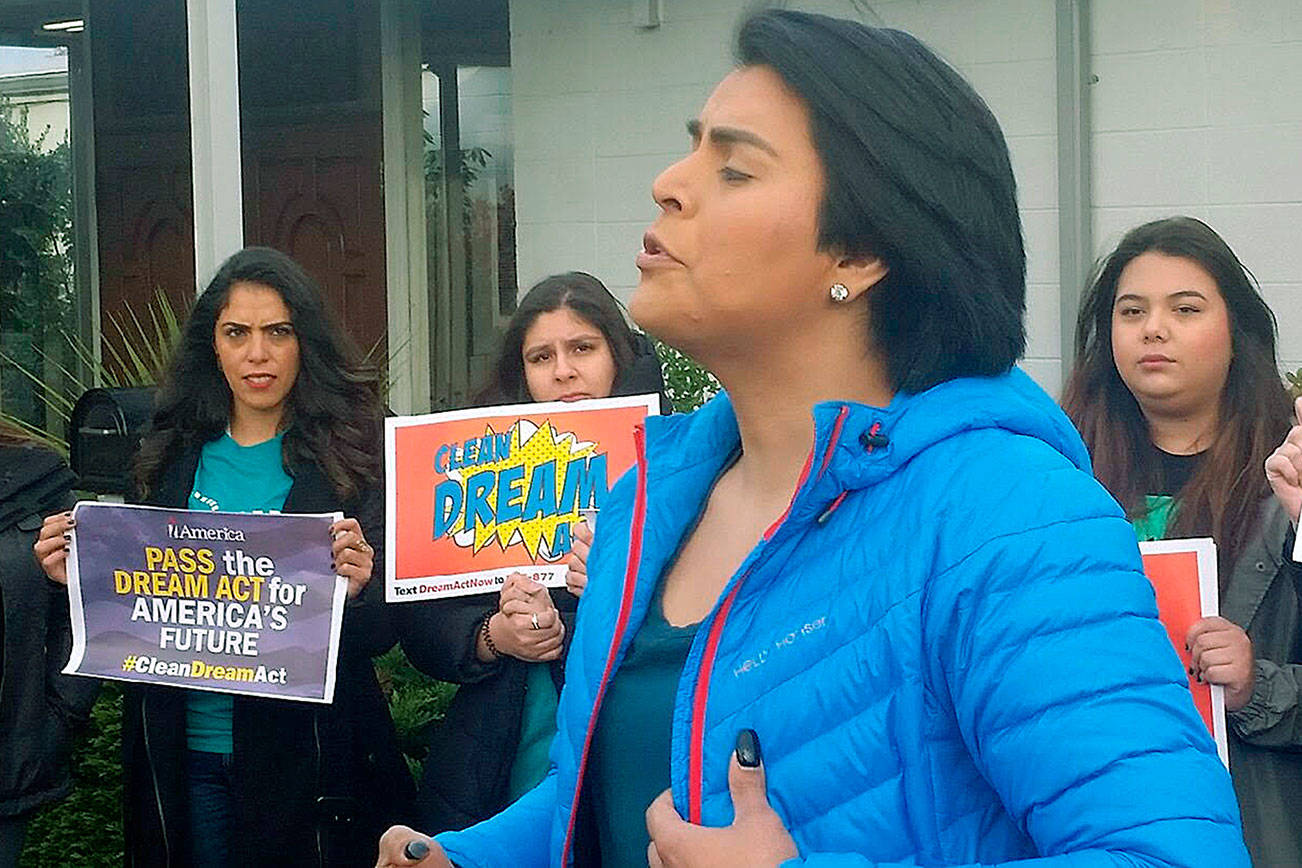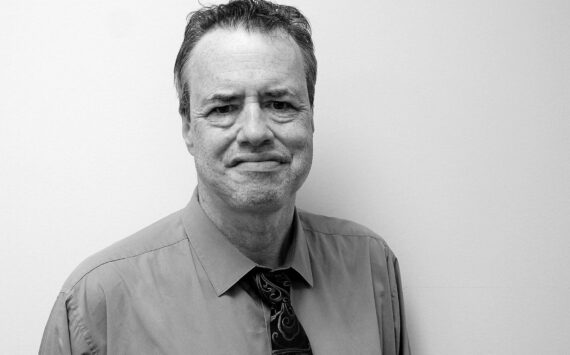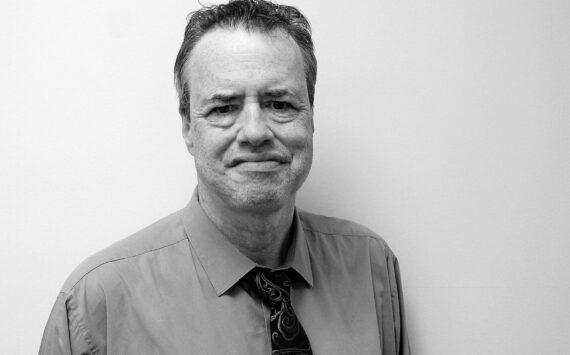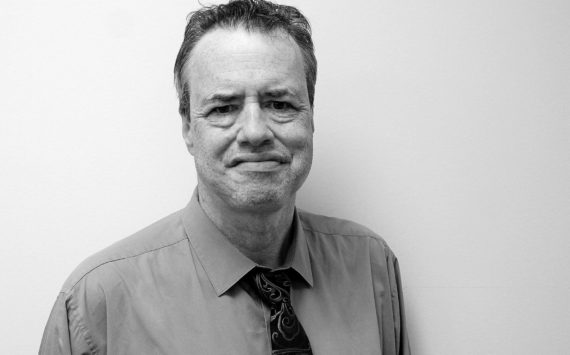Juana Medina was 10 years old when she travelled from Mexico to the United States with her family.
For two years, all nine children lived in a truck, travelling from place to place, and every morning her father, Miguel, rose early to gather what he could of the food that markets had thrown away the previous day, to feed his family. In such circumstances there was no opportunity to get a decent education.
“Life … was not good,” said Medina as she stood outside St. Matthew Episcopal Church in Auburn on Tuesday morning.
She was there with other so-called Dreamers who were brought into the United States illegally as children—as well as members of SEIU Local 6 and immigrant rights workers—to call on U.S. Congressman Dave Reichert, R-Auburn, to work with Congress to pass a clean Dream Act before the end of the year.
For Medina, today a 34-year-old janitor and mother of three, as for thousands of others who were brought to the U.S. as children in families fleeing natural disaster and instability, time is running out. She and her husband, Jeronimo, also from Mexico and also undocumented, have a house, a mortgage, he has a landscaping business–and it is all in peril.
“Donald Trump wants to deport all the people who have DACA, and my DACA expires in 2019. I can’t renew again because they want to take it away,” Medina said of the Deferred Action for Childhood Arrivals program, which the Trump administration announced in September that it intended to end, signing an executive order to rescind the Obama-era order that created the program. The program is set to expire in March, unless Congress takes action.
Reichert has indicated that he does not agree with ending DACA. In a statement following the president’s announcement, he said that “DACA recipients have contributed so much to our communities, and punishing them is not in the American DNA.” Yet, the congressman—who is in his final term—has yet to sign on to a co-called Clean DREAM Act, say activists. Such legislation would make DACA law without enacting any additional policies, such as those that would lead to the construction of a border wall. Those gathered in Auburn joined thousands of activists across the nation who have come out in recent weeks to demand the passage of such a bill.
“I want him to legalize us, give us something, to at least fight for our rights,” Medina said. “I want him to say that all DACAs must be legalized. I am nervous every day that ICE will come knocking at the door and say, ‘You no longer have DACA, time to go back to your country.’
“I haven’t been to Mexico since I came to the United States. It wasn’t my choice to come. My family brought me here,” Medina added.
Monserat Padilla, 25, came to the United States as a 2-year-old, and has lived in Washington state for the last two years.
“Now I am here, 23 years later, fighting for my livelihood in this country and not to be deported to a country I know nothing about,” Padilla said. “I was fortunate enough to receive DACA, but unfortunately, I was one of the people who timed out after the announcement came on Sept. 5.”
The reality, Padilla said, is that the clock is ticking for thousands of people.
“These are your friends and neighbors in our communities, and they strengthen our economy and make our country secure. More than 800,000 were able to apply for DACA, trusting on this government to be able to find a solution in the long term,” Padilla said. “Here in … the district of Congressman Dave Reichert, more than 1,900 immigrant youth applied for this program. If these folks were to be removed from this county, $121 million would be lost annually.”
There must be a solution, Padilla said, and it must come now.
“We want Dave Reichert to co-sign the legislation bill, which needs the signatures of 216 members of Congress, and all we need is six more. His legacy of leadership on immigration is important to us, and we want him to continue it before he leaves,” Padilla said.
Seattle labor, immigrant rights workers, faith and community groups are also calling on the Department of Homeland Security to reverse its decision to terminate Temporary Protected Status (TPS) for Nicaragua and Sudan and to create a path to permanent citizenship for all TPS recipients.
news@seattleweekly.com
This story was first published in The Auburn Reporter.









